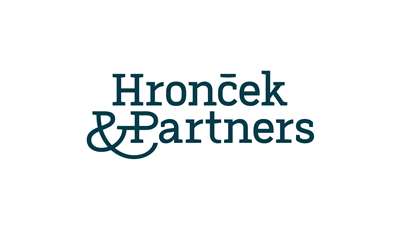Pursuant to Section 2(1)(c) of Act No. 315/2016 Coll. on the Register of Public Sector Partners and on Amendments to Certain Acts (hereinafter referred to as the "RPVS Act"), an authorized person may be a lawyer, notary, a bank, auditor or tax advisor who has a place of business or registered office in the Slovak Republic and who, on the basis of a written agreement, has undertaken to perform the duties of an authorized person for a public sector partner, as well as a foreign person authorized to carry out the same business as the authorized person referred to above in the territory of the Slovak Republic, who has its place of business or organizational unit in the territory of the Slovak Republic and who has undertaken, on the basis of a written agreement, to perform the duties of an authorized person for a public sector partner (hereinafter referred to as "PVS").

Each PVS may have only one authorized person registered in the public sector partner register (hereinafter referred to as "RPVS"). The authorized person acts on behalf of the PVS. Submissions not made by an authorized person on behalf of the PVS will be rejected by the registration authority.
The authorized person has a contractual relationship with the PVS based on a written agreement setting out the obligations of the authorized person towards the PVS. The provisions of Act No. 513/1991 Coll. Commercial Code (hereinafter referred to as the "Commercial Code") shall apply mutatis mutandis to the agreement on the performance of the authorized person's obligations to the PVS. The authorized person may not be restricted by instructions from the PVS. The agreement between the PVS and the authorized person is a mandatory part of the annex to the application for registration of the PVS in the RPVS.
The exclusion of an authorized person is directly regulated in the Act on the RPVS, where § 19 of this Act defines specific reasons for the exclusion of an authorized person:
- the authorized person may not be both the PVS and the final beneficiary (hereinafter referred to as "KUV") of the PVS for which the authorized person is to perform its activities in the same matter,
- the KUV of the authorized person and the PVS is the same natural person,
- any relationship of the authorized person to the PVS or to members of the PVS bodies that could call into question their impartiality, in particular if they are financially or personally linked to the PVS.
It is precisely the personal and property links between the authorized person and the PVS that are the most frequent reason for the registration court to examine the issue of conflict of interest.
A personal connection is understood to mean a relationship between "close" persons (the definition of close persons is defined in Section 116 of the Civil Code: "A close person is a relative in the direct line, a sibling, and a spouse; other persons in a family or similar relationship are considered to be close to each other if the harm suffered by one of them would reasonably be felt by the other as harm to themselves." Personal connection also means the participation of an authorized person in supervisory, control, and other bodies of PVS. In practice, we have often encountered cases where the statutory body (executive) of an authorized person (who may be a lawyer practicing through a commercial company) is also a member of the supervisory body (supervisory board) of PVS, which in this case may be considered a violation of the exclusion under Section 19 of the RP Act. is also a member of the supervisory body (supervisory board) of the PVS, which in this case may be considered a violation of the exclusion under Section 19 of the RPVS Act.
The property connection consists of a relationship in which the authorized person is "dependent" on the PVS for their income (e.g., an employment relationship between an employee and an employer), as well as any participation in the business or profits of the PVS (e.g., participation in business through a silent partner, participation in business in the form of share ownership, etc.).
In addition to the above reasons, the impartiality of an authorized person may also be called into question by other relationships that may jeopardize the professionalism, quality, and, above all, the objectivity of the authorized person's performance. Legal theory and court case law have repeatedly ruled that impartiality manifests itself in two aspects, namely in a subjective criterion, which ultimately means that the authorized person must subjectively consider themselves impartial, unbiased, and capable of acting independently. And an objective criterion, which requires that there be an objective belief on the part of other persons that there are no doubts as to the impartiality of the authorized person in relation to the PVS. In other words, subjective impartiality must always be accompanied by objective impartiality, i.e. there must be an objective belief that there are no circumstances that could lead to doubts that there are reasons between the PVS and the authorized person that could compromise the impartiality of the authorized person's activities.
Violation of the prohibition on the performance of activities by an authorized person under Section 19 of the RPVS Act results in the following sanctions:
- imposition of a fine by the registering authority under Section 13(1) and (4) of the RPVS Act, namely
a. on the PVS in the amount of the economic benefit obtained by the PVS; if the economic benefit cannot be determined, the registering authority shall impose a fine of between EUR 10,000 and EUR 1,000,000 (see Section 13(1) of the RPVS Act)
b. a fine of between EUR 10,000 and EUR 100,000 shall be imposed on the person who is the statutory body or on each member of the statutory body of the PVS at the time of the breach of the obligation under the introductory sentence (for more details, see the interpretation of Section 13(2) of the RPVS Act)
- leads to the deletion of the Partner from the Register (for more details, see the interpretation of Section 12(1) of the RPVS Act)
- leads to the disqualification of the statutory body of the PVS, which is a legal entity.
- leads to the entity with which the PVS has concluded a contract being entitled to withdraw from such a contract or suspend its performance, or not to commence performance of the contract at all, without such entity facing consequences such as the accrual of interest on late payment.
The above has already been reflected in practice, where the registration authority, or rather the District Court in Žilina, ruled on a conflict of interest between the authorized person and PVS within the meaning of Section 19(c) of the RP Act. the District Court in Žilina, ruled on a conflict of interest between an authorized person and PVS within the meaning of Section 19(c) of the RPVS Act, where a fine was imposed on both the authorized person and PVS due to the confirmation of a conflict of interest.
From the decision-making practice of the registration authority:
Resolution of the District Court in Žilina, file no. 5PPok 3/2018-172:
"the relationship between a partner of a public sector partner and the managing director of an authorized person, based on their joint participation as partners in a third commercial company (even if through other legal entities majority-controlled by them), is objectively capable of raising doubts as to the impartiality of the authorized person in the performance of acts under the RPVS Act in relation to the public sector partner, and the authorized person is therefore excluded from performing acts under the RPVS Act in relation to the public sector partner pursuant to Section 19(c) of the RPVS Act."
Resolution of the District Court in Žilina, file no. 43PPok/2/2018-172 -391:
"The relationship between a member of the supervisory board of a public sector partner and the managing director of an authorized person based on their joint participation as partners in a third commercial company (even if through other legal entities controlled by them) is objectively capable of raising doubts about the impartiality of the authorized person in performing acts under the Act on the Register of Public Sector Partnersin relation to the public sector partner, and the authorized person is therefore excluded from performing acts under the Act on the Register of Public Sector Partners in relation to the public sector partner pursuant to Section 19(c) of the Act on the Register of Public Sector Partners."
